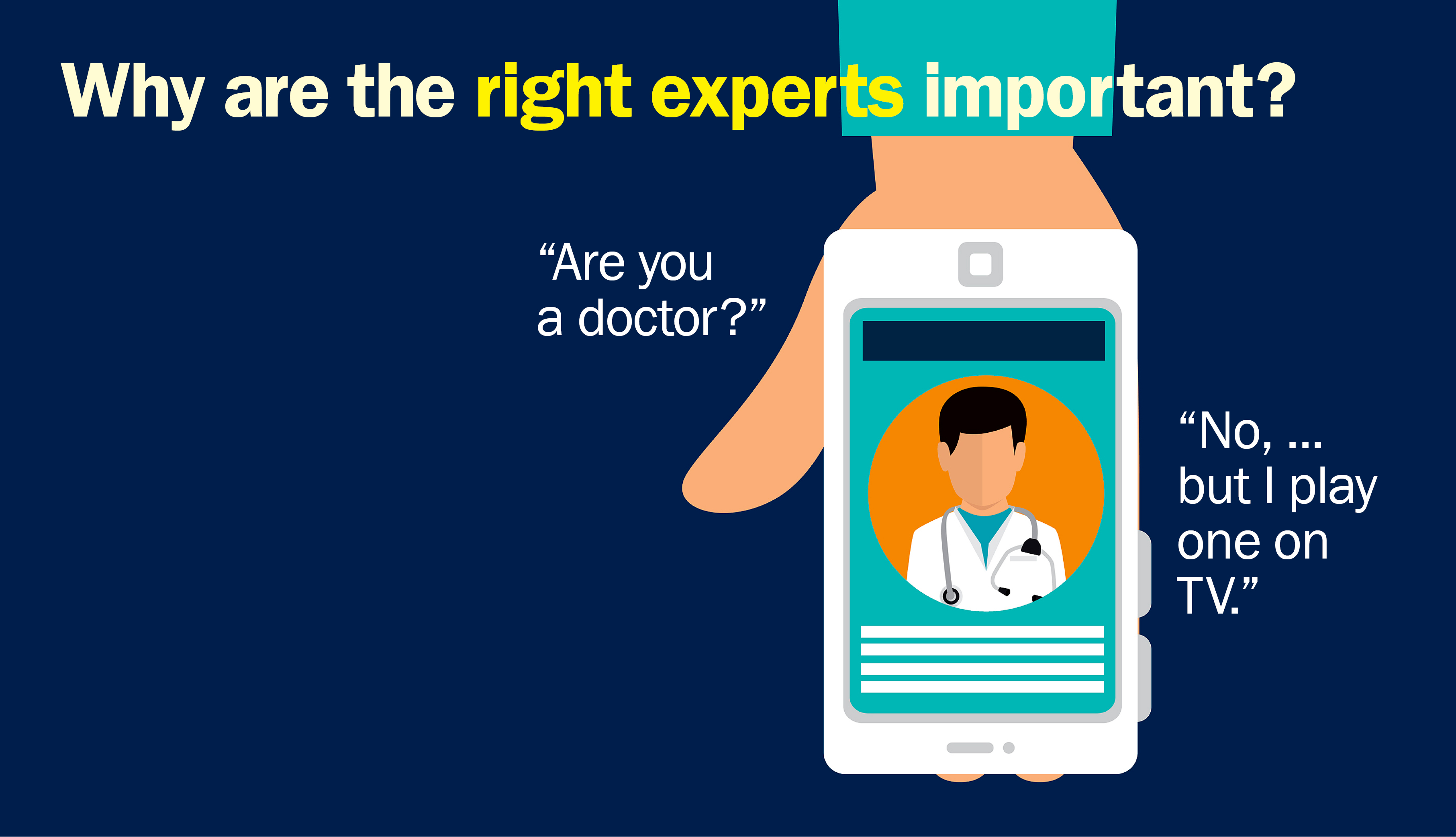
You wouldn’t hire a psychiatrist to fix your plumbing, so make sure the “expert” offering health advice online is actually qualified and trained appropriately to give that particular advice. Seems simple enough, but it can sometimes be hard to tell.
All medical professionals have a defined scope of practice. While they may be somewhat knowledgeable about other topics, it’s not always appropriate for them to offer advice about other areas of practice. Health and medicine are complicated, and many topics require specialized study and training to be able to fully understand the topic and be able to, therefore, ethically and responsibly offer advice. This is why your primary care provider will send you to a specialist if needed. Your general practitioner’s knowledge is broad, but he or she can't be an expert in all matters of health.
Many Dr. Toms, Dicks and Harrys offer opinions and advice on the internet and in the media. Many are talented professionals speaking about their field and area of practice. Some, however, are touted as experts when they actually have no or extremely limited training or experience in the area they are discussing. For example, they may be a medical doctor, but they do not have training or education in addiction treatment or whatever the specific area is they are discussing.
At the health department, we conduct on average about a hundred media interviews every year. However, we turn down interviews when the topic they want us to discuss isn’t our area of expertise. While we employ several medical doctors, none are dermatologists or oncologists, so it would be inappropriate for us to go on-air discussing the complexities of skin cancer, for example.
One particular area of concern is nutrition. It seems everyone online has an opinion about what we should or shouldn’t be eating. This area can be especially tricky.
So, how can you tell?
- Check their credentials.
If an online expert claims to have the latest cure for seasonal allergies, but they aren’t an allergist, look for another source. If they wrote a “breakthrough” diet book, but they aren’t a registered dietitian nutritionist, look for another source. Are they licensed? Do they have a degree? Certifications can be important (i.e., board certified), but some certificates are a dime a dozen and can easily be completed online.
- Their credentials are easy to find.
A good source will list an expert’s credentials. And, you can usually find their complete bio on university or institution websites. If you can’t find their credentials, that’s a red flag. - Check their history.
They should have a documented history of working in the area for which they claim to be an expert. If they’re talking about pediatrics, they may have clinical credentials and they’ve worked for a well-known children’s hospital for years. If they’re talking about heart conditions, they may have studied conditions of the heart at a well-known university or medical institution for years. And, they have a degree to back it up. And, so on. - They stick to just their area of expertise.
They don’t offer advice on many different specialties. For example, they don't hop from addiction treatment to cancer treatment or from nutrition advice to vaccine research. Just like a good study will list its limitations, a good expert will know theirs. If they do cover multiple topics, they’ll seek information from a colleague, university or a source that is an expert in that area, and they will say who they talked with in their interview or story; i.e., they may say, “According to the ….”. - Do they go against the grain?
Is their advice in line with other experts in the field? If not, seek more information. One good way to check is to look for the field’s national association (i.e., the American Academy of Pediatrics, American Academy of Family Physicians, etc.) and what their stance is on a topic. - Are they an expert or just famous?
Fame, popularity and likeability do not mean someone is an expert or qualified to offer health recommendations.



Click here to leave a comment or concern.